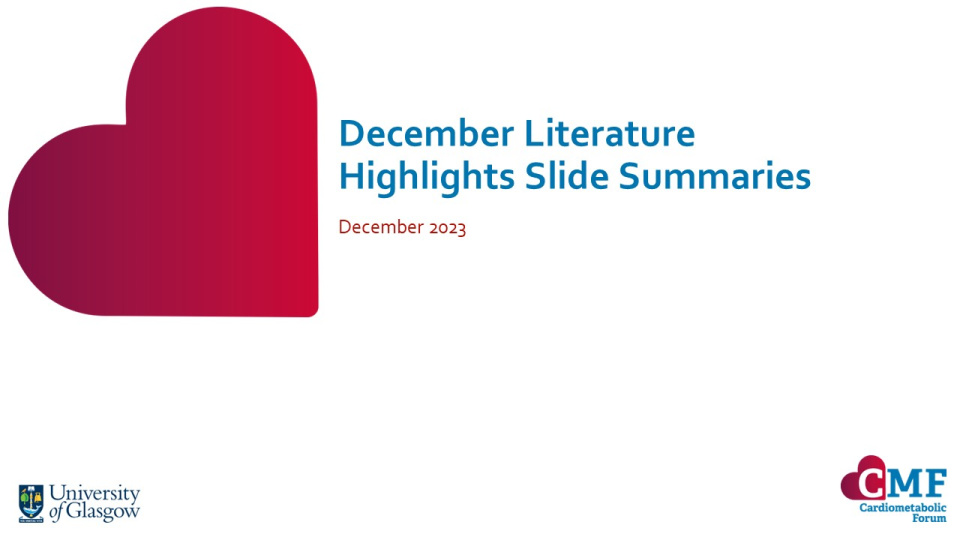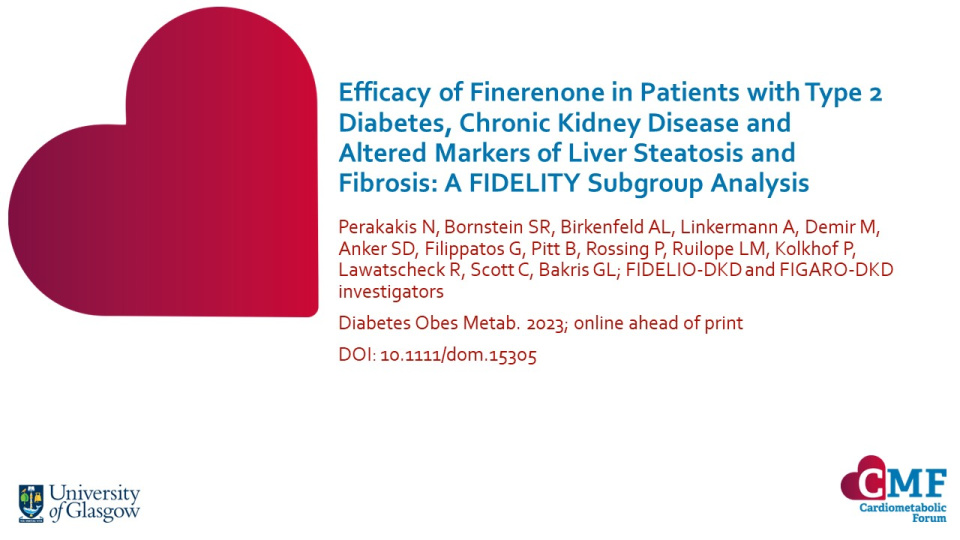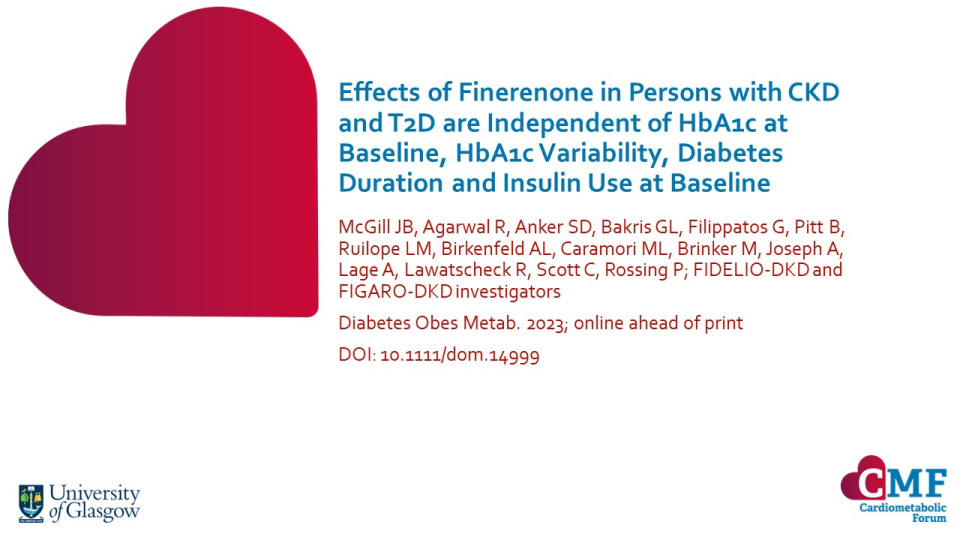Publications
Stay up to date with our literature reviews which are curated by experts to feature the most important publications released each month. Explore our publications for access to concise summary slides for your own use.
Efficacy of Finerenone in Patients with Type 2 Diabetes, Chronic Kidney Disease and Altered Markers of Liver Steatosis and Fibrosis: A FIDELITY Subgroup Analysis
Diabetes Obes Metab. 2023; online ahead of print DOI: 10.1111/dom.15305
This post hoc subgroup analysis from FIDELITY investigated the effect of finerenone on liver function, cardiovascular and kidney composite outcomes in patients with CKD and T2D, stratified by their risk of liver steatosis, inflammation and fibrosis.
Keywords:
Effects of Finerenone in Persons with CKD and T2D are Independent of HbA1c at Baseline, HbA1c Variability, Diabetes Duration and Insulin Use at Baseline
Diabetes Obes Metab. 2023; online ahead of print DOI: 10.1111/dom.14999
Given the role of HbA1c, diabetes duration and insulin use in determining morbidity and mortality of CKD in T2D, it is important to investigate whether these factors modify the efficacy and safety of therapies that mitigate the cardiorenal impact of CKD in T2D. This post hoc analysis of the FIDELITY database evaluated the effect of finerenone by baseline HbA1c, HbA1c variability, diabetes duration and baseline insulin use on cardiorenal outcomes and diabetes progression.



